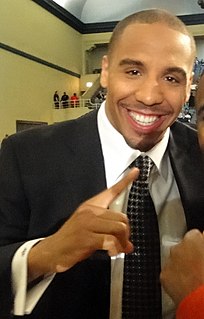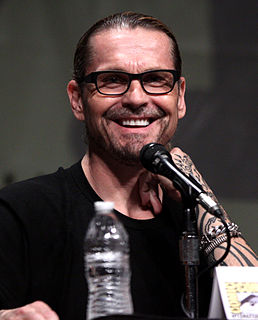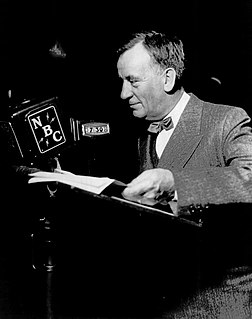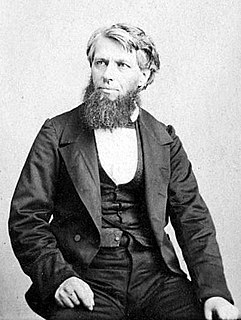A Quote by Alexander Smith
Not on the stage alone, in the world also, a man's real character comes out best in his asides.
Related Quotes
We all suffer alone in the real world. True empathy's impossible. But if a piece of fiction can alow us imaginatively to identify with a character's pain, we might then also more easily conceive of others identifying with their own. This is nourishing, redemptive; we become less alone inside. It might just be that simple.
I want my legacy to be that I was a man of character, I was a God fearing man and somebody who bettered the sport in terms of the way I represented the sport. But also that fact that I was a fierce competitor and fought the best in the world and was able to come out on top, so if those things could be said about me, then I look at it as a job well done.
That's the thing about stage: It's something you can't find anywhere else. It's a two-and-a-half, three-hour experience, and it's a real relationship. You're sending out energy from the stage, but the audience is giving you back so much also, so that's also lifting you and pushing you forward as you're performing and giving you so much energy. You can't find it anywhere else, and that's why people get addicted to being on stage, and when they're not on stage are kind of looking for that and constantly searching for it.
A man follows the path laid out for him. He does his duty to God and his King. He does what he must do, not what pleases him. God's truth, boy, what kind of world would this be if every man did what pleased him alone? Who would plough the fields and reap the harvest, if every man had the right to say, 'I don't want to do that.' In this world there is a place for every man, but every man must know his place.
Misanthropy ariseth from a man trusting another without having sufficient knowledge of his character, and, thinking him to be truthful, sincere, and honourable, finds a little afterwards that he is wicked, faithless, and then he meets with another of the same character. When a man experiences this often, and more particularly from those whom he considered his most dear and best friends, at last, having frequently made a slip, he hates the whole world, and thinks that there is nothing sound at all in any of them.
A feller's glad to be a friend, Out fishin'. A helpin' hand he'll always lend, Out fishin' The brotherhood of rod and line An' sky an' stream is always fine; Men come real close to God's design, Out fishin'. A feller isn't plotting schemes, Out fishin'. He's only busy with his dreams, Out fishin' His livery is a coat of tan; His creed, to do the best he can; A feller's always mostly man Out fishin'.
It is an absolutely vain endeavor to attempt to reconstruct or even comprehend the nature of a human being by simply knowing the forces which have acted upon him. However deeply we should like to penetrate, however close we seem to be drawing to truth, one unknown quantity eludes us: man's primordial energy, his original self, that personality which was given him with the gift of life itself. On it rests man's true freedom; it alone determines his real character.







































